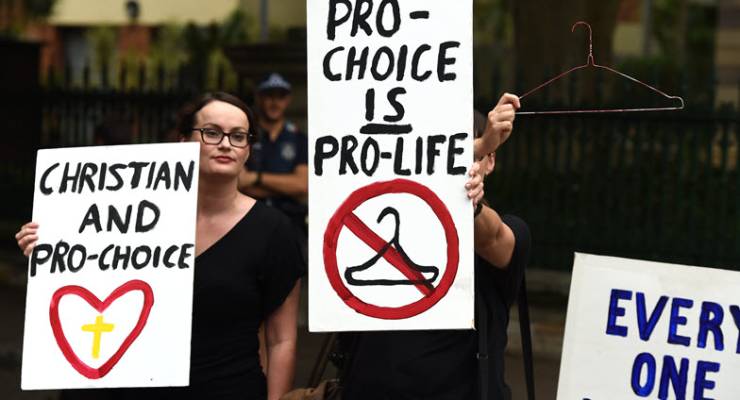
Following years of inertia and one notable strategic failure, NSW is at a crossroads: follow every other state and modernise abortion law, or revive an extremist proposition that will criminalise pregnant women’s rights?
NSW’s conservatism has been thrown into the spotlight again, as it becomes the last state where abortion remains unchanged in the criminal code after Queensland’s historic vote last week (though SA has only partly decriminalised abortion). The NSW upper house looks close to passing foetal personhood laws, which have been used overseas to criminalise women seeking reproductive health care.
The push to further politicise pregnant women comes after a tragic incident where a pregnant woman, Katherine Hoang, was killed in a car accident. There have been calls to recognise that a life has been lost in addition to that of the pregnant women.
This issue was ventilated extensively in 2013 and 2014, but most commentary completely ignores that such an offence already exists in NSW. It is grievous bodily harm to destroy the foetus of a pregnant woman, whether or not the woman herself is injured — an offence punishable with imprisonment for up to 20 years
This tragedy is being exploited by the Christian Democratic Party’s Fred Nile. One of Niles’ parliamentary rituals over his long period in office has been the introduction of foetal person laws. They are a favoured tool of anti-choice campaigners in the United States, and Nile’s wording even reflect the model laws these groups offer.
Government MPs are said to be feeling much heat regarding the death of Hoang, and Crikey understands that at least one has made substantial amendments to Nile’s bill and moved to gather support for it ahead of the parliament raising in three weeks.
In worldwide cases, Foetal personhood laws have been used to convict a mentally ill woman who attempt suicide and miscarried as a result. In one particularly grotesque case in the US, it forced a dead woman’s husband to take a hospital to court. The woman in question was brain dead and on life support, but the hospital refused to respect her end of life wishes because she was pregnant. Another US woman who attempted self-abortion with pills ordered on the internet was convicted of murder.
Despite being told that foetal personhood laws would not affect pregnant women like this, that is exactly how they are being used.
NSW Parliament has become more conservative since it last considered foetal personhood, and more open to moves by its religious wing. After all, we’ve seen the triumph of this faction federally, and its leading lights are NSW-based.
It seems unlikely that this would have Gladys Berejiklian’s full-throated support. She voted against the bill in 2013. Her pro-choice views are more in keeping with the small-l philosophy around personal responsibility and choice of the Liberal Party of as little as even five years ago; her party have moved to the right around her.
That might explain her less-than-enthused positioning on this and her request that members of the community tell her what they thought, which some have seen as a clear message that she was open to being lobbied by the experts who united against the bill last time. Groups like the Australian Media Association, Royal Australian and New Zealand College of Obstetrics and Gynaecologists, the Law Society and the Bar Association have not made their positions public yet, perhaps waiting to see the text of a bill — a high-stakes game in the last, febrile three sitting weeks before an election.







Watch what Prue Goward and Tanya Davies do in parliament over this. They both voted against the bill to stop harassment of women and staff entering and leaving abortion clinics. Davies is the Minister for Women and Goward was former Minister for Women. Davies is anti abortion and Goward needs her support to protect her preselection.
Thanks for that heads-up, I wasn’t aware of their linkage.
Maybe both Ministers for Women but not women’s rights.
Oh great. It’s 1959 again.
BK s disdain for nsw labor underestimates how bad the LNP are.